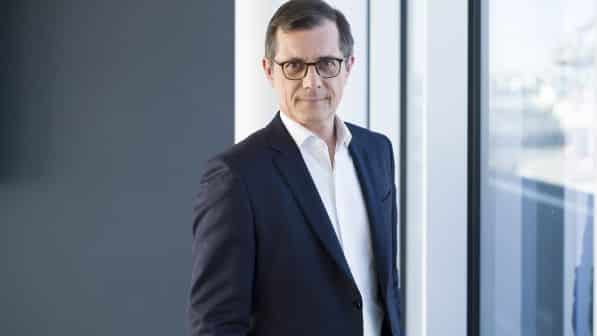PUBLIC transport is enduring a “shaky period” according to Mr Antoine Grange, CEO Europe at Transdev Group. Delegates at the International Public Transport Association’s (UITP) Global Public Transport Summit in Barcelona on June 4-7 heard repeatedly how the Covid-19 pandemic has created a “new normal” around the world and Grange shares this assessment.
“If you take all big cities, Madrid, Paris, Amsterdam, ridership is more or less between 85% and 95% compared with the levels of 2019,” Grange says. “And it is not growing anymore. In contrast, suburban and inter-urban rail traffic has recovered or is exceeding 2019 levels in some countries. This is the new normal.”
Geopolitical events that have followed the pandemic - the Russian invasion of Ukraine, surging inflation and the energy crisis in Europe - have placed further strain on public transport authorities and operators.
Grange says the impact varies by region and market. Europe has been “hit like hell” by the energy crisis, whereas the impact on North and South America has been minimal. On the other hand, issues such as inflation, which has seen the cost of raw materials and capital surge, and the recruitment crisis are being felt everywhere although to varying degrees.
Transition
“I do not believe we are out of the crisis,” Grange says. “In fact, I am convinced we are entering a transition. A transition, by definition, means that everyone is losing their fixed points on which they base their decisions. Now, everybody, not only the operators or public authorities, but also governments are looking for what are going to be the reference points in the future.
“There are many areas to explore, and to investigate, to make sure we can build new reference points in the new normal. In a transitional period like this, we need to be flexible. We need to adapt.”
A fresh and more flexible approaching to attracting new recruits is especially needed, according to Grange. Transdev is being proactive. Grange refers to a successful work in the Netherlands where the operator increased resources for its recruitment teams and increased advertising to reach a new audience.
It is also lobbying governments to reduce the barriers to entry into work, including in the Netherlands, where the government was convinced of the need to allow applicants to take the examination to become a train driver in English, effectively ending the requirement for all drivers to speak Dutch. “We are seeing the effect as we have more candidates than we used to, especially those who are English speakers,” Grange says.
“In a transitional period like this, we need to be flexible. We need to adapt.”
Antoine Grange, Transdev Group CEO Europe
There is similarly an emphasis on redefining what it means to work in public transport. In France, Transdev recruiters travelled on a bus into cities to connect directly with young unemployed people, helping to successfully recruit 4000 new bus drivers in 2022. “The message was that this job is not just about driving a vehicle, this job has a purpose, you are transporting people, you are bringing a grandmother to a hospital, you are bringing a kid to school,” Grange says. “We need to explain that because the new generation want to have jobs with a purpose.”
Traditional public transport business models also need to be challenged. How operators go about this will again depend on local conditions. However, Grange says there should be an emphasis on attracting passengers who have not traditionally used public transport before.
Public transport authorities will likewise have to show greater flexibility in how they approach the provision of public transport services. The climate crisis means there is a general acceptance among government officials that more people need to use public transport rather than private vehicles. Yet the capacity to deliver the necessary change is not always present, according to Grange.
“We have to think about how to adapt the rules that were defined 20 or 30 years ago by the European Community to ensure fair competition but in a context which is not the same as today,” Grange says, pointing to the problems with increasing contract prices in line with rising costs that were exposed by the energy crisis. “Let’s adapt the rules so there is a little more flexibility.”
At the UITP summit in Barcelona, Grange participated in a panel discussion of the merits of public-private partnerships (PPPs). While he admits he is not convinced by PPPs for long-term infrastructure projects given their limited success in Europe, he is more open to the concept of private-sector partnerships (PSPs) where the private sector can provide specific expertise and input under contract to support the need for major investment in new infrastructure, but without the same level of risk.
“The cost of capital is so high at the moment that it we need fair and transparent discussion between the public and private sector,” he says.
Grange adds that greater private involvement should extend to further market opening to finally break the monopoly of the state-run rail operators, which he describes as experts in maintaining the status quo. Instead, he wants “transparent and fair competition,” which will accelerate public transport growth and offer the best opportunity for the sector to seize the opportunities presented by the climate crisis.
“If in 50 years’ time we will continue to have 80% of all journeys made by private car, we will have a problem,” Grange says. “The climate is at stake and the next generation needs us to think outside of the box.”

